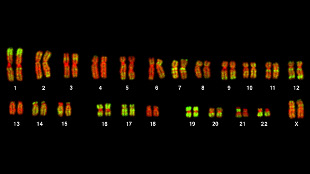 Wikimedia, Bolzer et al.With the price of whole genome sequencing plummeting from billions of dollars to the coveted $1,000 mark, policy makers and identify theft experts are scurrying to set up safety nets for genetic privacy protection. Today (October 11), the Presidential Commission for the Study of Bioethics released a report that finds current laws and guidance lacking, but provides recommendations to better protect individuals going forward.
Wikimedia, Bolzer et al.With the price of whole genome sequencing plummeting from billions of dollars to the coveted $1,000 mark, policy makers and identify theft experts are scurrying to set up safety nets for genetic privacy protection. Today (October 11), the Presidential Commission for the Study of Bioethics released a report that finds current laws and guidance lacking, but provides recommendations to better protect individuals going forward.
“This is a proactive and a forward looking report,” commission chair Amy Gutmann said in a press conference yesterday (October 10). “In order to make full use of whole genome sequencing, which holds enormous promise for human health and medicine, we’re going to have to figure out how to protect people’s privacy and avoid the misuse of this very personal data.”
Though the commission found suitable protections when whole genome sequencing is carried out by clinicians—who are subject to the Health Insurance Portability and Accountability Act (HIPAA)—it revealed inadequate protection of genetic privacy in commercial and research arenas, which are so far only subject to Common Rule or Institutional Review Boards. For instance, only about half of US states protect individuals against surreptitious commercial sequencing.
...




















